Lion's mane mushrooms are a type of edible mushroom that are native to North America and parts of Europe. They are also known as "bearded tooth mushrooms" or "satyr's beard," and are characterized by their long, shaggy appearance that resembles a lion's mane. They have a white or cream-colored cap and stem, and are often found growing on hardwood trees. Lion's mane mushrooms have a meaty, seafood-like flavor and are used in a variety of dishes, including soups, stews, and stir-fries.
They are also prized for their potential health benefits, which include improving cognitive function and boosting the immune system.
In this article, we'll focus on how to use lion's mane for depression as well as information about medication interactions and possible dosages.
What are some of the potential benefits of lion's mane mushrooms?
Lion's mane mushrooms are believed to have a number of potential health benefits, including:
-
Boosting the immune system: Lion's mane mushrooms contain compounds called beta-glucans, which have been shown to have immune-boosting effects.
-
Improving cognitive function: Some studies have suggested that lion's mane mushrooms may improve memory and cognitive function, potentially due to their effects on nerve growth factor (NGF) production.
-
Reducing inflammation: Lion's mane mushrooms contain antioxidants that may help to reduce inflammation in the body.
-
Supporting heart health: Some research suggests that lion's mane mushrooms may have cholesterol-lowering effects, which could be beneficial for heart health.
-
Reducing anxiety and depression: Some studies have found that lion's mane mushrooms may have a positive effect on mood, potentially due to their effects on serotonin and other neurotransmitters.
It's worth noting that many of these potential benefits are still being studied, and more research is needed to fully understand the effects of lion's mane mushrooms on human health.
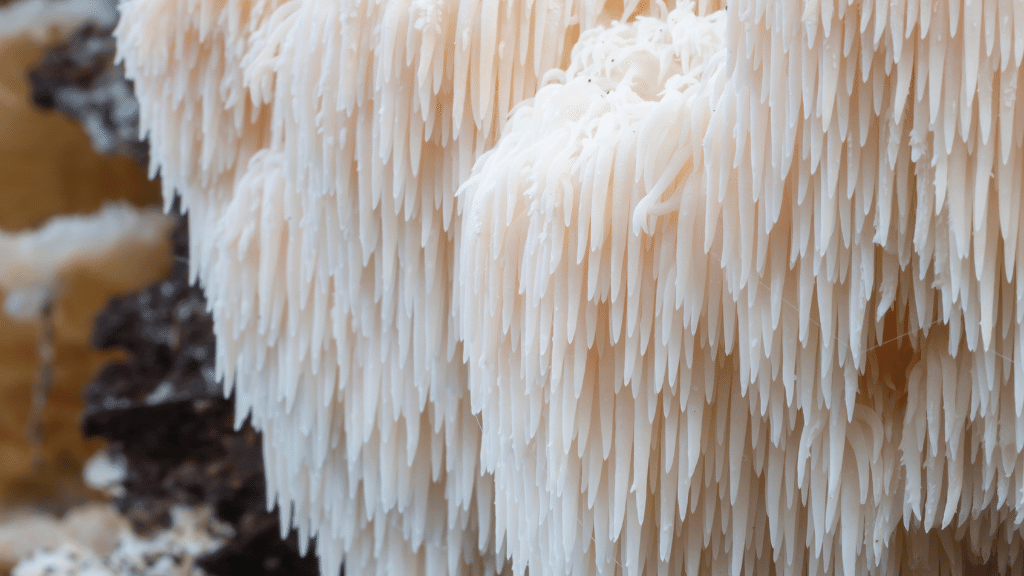
Understanding lion's mane studies on depression
Researchers are beginning to find links between chronic inflammation and mental health diagnoses like depression and anxiety. Lion's mane may be able to support this process. It might seem like a weird correlation, but it’s actually got a biological purpose.
As humans evolved, the depressive symptoms that came with the body’s anti-inflammatory response were natural tools in our infection-fighting toolkits.
But now, depression as a result of inflammation (think inflammation resulting from diet, gut health, lifestyle choices, and more) isn’t so useful.
Lion’s mane has the potential to interrupt this response. How?
- Amycenone: This nootropic, found in lion’s mane, has the potential to reduce both inflammation and depression. In one animal study, it “markedly” reduced both inflammation and the effects of depression, suggesting that it could be a potential supplement to fight inflammation-related depression. [source]
- Anxiety-relief: A similar look at how lion’s mane extract affected stress-reduction in mice found that a daily supplement at higher doses significantly reduced the effects of anxiety and depression-inducing activities. [source]
- Hippocampal neurogenesis: That’s science-speak for enhancements in the hippocampus, the part of your brain involved in learning and memory. It’s also a key player in some psychiatric diagnoses. One animal study found that consistent supplementation of lion’s mane improved symptoms of anxiety and depression by stimulating nerve growth in that part of the brain. [source]
How does lion's mane affect serotonin?
Serotonin is a neurotransmitter that plays a key role in mood regulation and is often referred to as the "feel-good hormone." Some research has suggested that lion's mane mushrooms may have a positive effect on serotonin levels, which could potentially lead to improvements in mood and a reduction in symptoms of anxiety and depression.
One study published found that supplementing with lion's mane mushroom extract for four weeks resulted in a significant increase in serotonin levels in mice. Another study found that lion's mane mushroom extract had a potent inhibitory effect on the enzyme monoamine oxidase (MAO), which is involved in the metabolism of serotonin. Inhibiting MAO activity can lead to an increase in serotonin levels.
It's worth noting that more research is needed to fully understand the effects of lion's mane mushrooms on serotonin and other neurotransmitters, and to determine the potential role they may play in mood regulation in humans.
Take a look at this scientific review examining the therapeutic potential of lion's mane for depression.
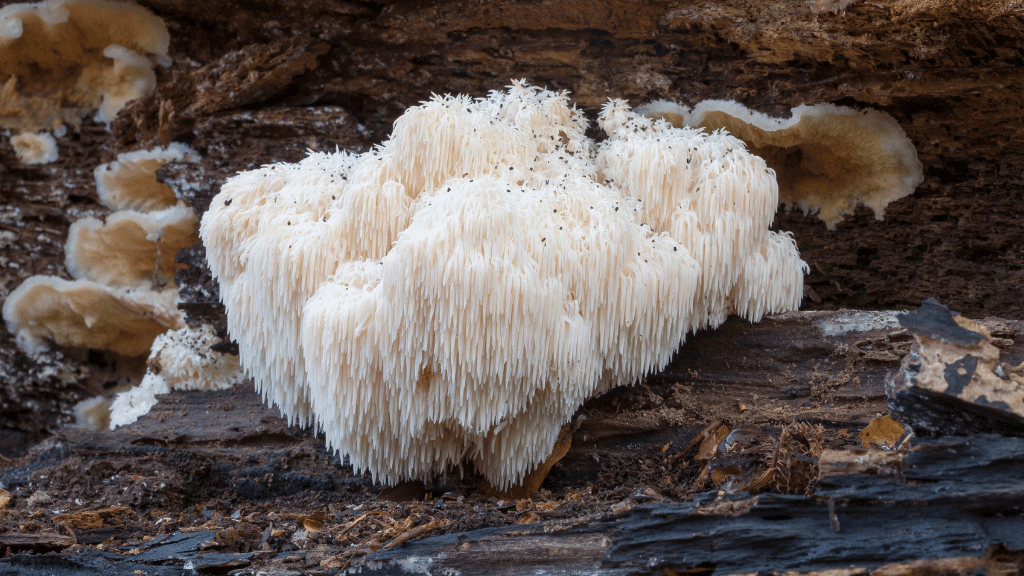
Does lion's mane interact with any medications?
It is always important to speak with a healthcare professional before taking any supplement, including lion's mane mushrooms, especially if you are taking any medications. While there is limited research on the potential drug interactions of lion's mane mushrooms, there is some evidence to suggest that they may have the potential to interact with certain medications.
For example, lion's mane mushrooms contain compounds called hericystin and hericystinin, which have been shown to inhibit the enzyme monoamine oxidase (MAO). MAO inhibitors are a type of medication that is used to treat depression and anxiety. Taking lion's mane mushrooms along with MAO inhibitors could potentially increase the risk of side effects, such as high blood pressure.
In addition, lion's mane mushrooms may have an effect on blood sugar levels, so if you are taking medication to control your blood sugar, it is important to monitor your levels closely and speak with your healthcare professional about any potential interactions.
Again, it is important to consult with a healthcare professional before starting any new supplement regimen, especially if you are taking any medications. They can help you determine if lion's mane mushrooms are safe for you to take and advise you on the appropriate dosage.
Are lion's mane mushrooms addictive?
No! Lion's mane mushrooms are not psychoactive, which means they aren't 'magic' and won't get you high. Lion's mane mushrooms are not considered addictive. You can learn more about lion's mane and addiction here.
What are the different ways to take lion's mane supplements?
Lion's mane mushroom supplements are available in a variety of forms, including capsules, tablets, powders, and tinctures. Some people choose to consume lion's mane mushrooms as food, either by cooking them or adding them to smoothies or other dishes.
Here are some common ways to take lion's mane mushroom supplements:
-
Capsules: Lion's mane mushroom capsules are a convenient and easy way to consume the supplement. They can be taken with water, and the dosage is typically indicated on the label.
-
Tablets: Lion's mane mushroom tablets are similar to capsules, but they are usually larger and may need to be taken with food.
-
Powders: Lion's mane mushroom powders can be mixed into water or added to food or smoothies. They are a good option for people who don't like swallowing pills.
-
Tinctures: Lion's mane mushroom tinctures are made by extracting the active compounds from the mushrooms using alcohol. They are usually taken by placing a few drops under the tongue, and the dosage can be adjusted by adjusting the number of drops taken.
-
Tea: Lion's mane tea is a popular way to consume lion's mane mushrooms. Especially if you have fresh mushrooms on hand. To make lion's mane tea, steep thinly-sliced lion's mane mushrooms in very hot (NOT boiling) water for 15-30 minutes. Strain the mushrooms out, add any flavors you like, and enjoy.
- Gummies: Taking lion's mane gummies can be an easy and fast way to supplement with lion's mane. However, you may need to take more gummies in order to have a functional benefit. Make sure to check your sourcing and packaging details for dosage details. Check out our guide to learn more about lion's mane gummies.
It's important to follow the recommended dosage instructions on the product label, as taking too much of any supplement can be harmful. You should also consult with a healthcare professional before starting any new supplement regimen, especially if you have any underlying health conditions or are taking any medications.
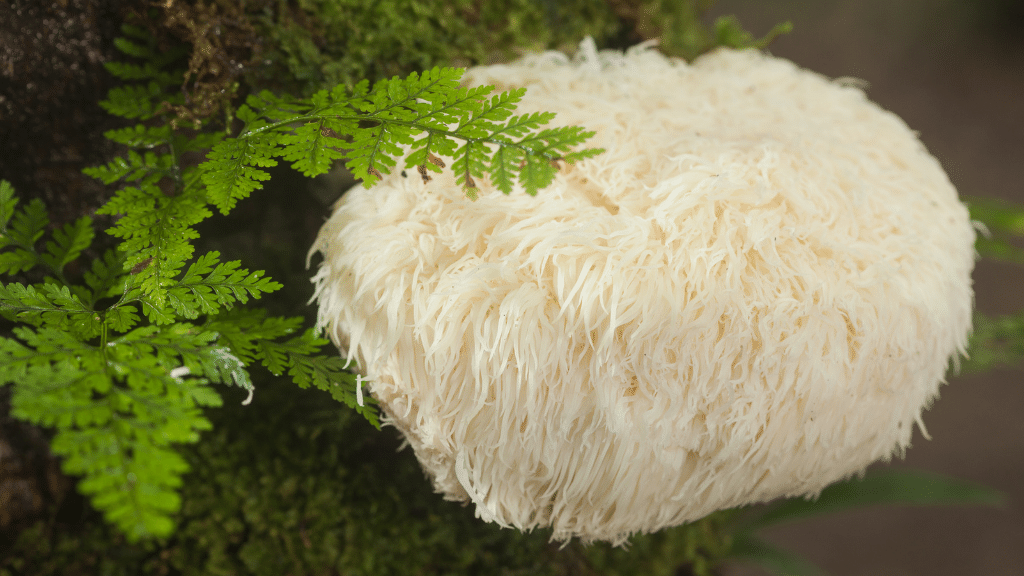
How much lion's mane should you take for depression?
The recommended daily dose of lion's mane for depression in humans is unknown, but some generic sources suggest 1,000 - 3,000 mg of lion's mane per day. You should work with your doctor in order to determine the appropriate dosage for your situation and current medications.
Always start with very small doses and increase slowly in order to evaluate any effects unique to you.
Make sure you review your product's package details for information about mg, extraction processes, type of mushroom (mycelium vs fruiting body) in order to adjust your dosage amounts.
Hop on over to our lion's mane dosage guide for more.
How to easily make lion's mane extract at home
Lion's mane mushroom extract can be made at home using a few simple ingredients and a little bit of time. Here is a basic recipe for making lion's mane mushroom extract:
Ingredients:
- 1 cup chopped fresh lion's mane mushrooms
- 1 cup high-proof alcohol (such as vodka or Everclear)
Instructions:
- Wash the lion's mane mushrooms and chop them into small pieces.
- Place the mushrooms in a clean, dry jar and cover them with the alcohol.
- Seal the jar and store it in a cool, dark place for at least 4 weeks, shaking the jar once a week to help extract the active compounds from the mushrooms.
- After 4 weeks, strain the mixture through a fine-mesh sieve or cheesecloth to remove the mushrooms.
- Transfer the extract to a clean jar or bottle and store it in a cool, dark place.
It's important to use high-proof alcohol in this recipe, as it has a higher solvent power and will be more effective at extracting the active compounds from the mushrooms. You can adjust the amount of mushrooms and alcohol used to make a larger or smaller batch of extract.
Note: Some people choose to use glycerin instead of alcohol to make a alcohol-free extract. To do this, simply replace the alcohol with an equal amount of glycerin and follow the same recipe. Glycerin is a plant-based solvent that is less harsh than alcohol and may be better tolerated by some people. However, it may not be as effective at extracting the active compounds from the mushrooms.

What mushrooms besides lion's mane might help with depression?
There are a number of mushrooms that have been studied for their potential effects on mood and mental health, including depression. Here are a few examples:-
Reishi mushrooms: Reishi mushrooms, also known as Ganoderma lucidum, are a type of medicinal mushroom that has been used for centuries in traditional Chinese medicine. Some research suggests that they may have a positive effect on mood and may be helpful in reducing symptoms of anxiety and depression.
-
Cordyceps mushrooms: Cordyceps mushrooms, also known as Cordyceps sinensis, are a type of medicinal mushroom that is native to Asia. They have been shown to have a number of potential health benefits, including reducing inflammation and supporting immune function. Some research also suggests that they may have a positive effect on mood and may be helpful in reducing symptoms of anxiety and depression.
-
Chaga mushrooms: Chaga mushrooms, also known as Inonotus obliquus, are a type of medicinal mushroom that is native to Russia and other parts of Europe. They are high in antioxidants and have been shown to have a number of potential health benefits, including reducing inflammation and supporting immune function. Some research also suggests that they may have a positive effect on mood and may be helpful in reducing symptoms of anxiety and depression.
It's important to note that more research is needed to fully understand the effects of these mushrooms on mood and mental health, and to determine the optimal dosage and duration of use.
As with any supplement, it is important to speak with a healthcare professional before taking any mushroom products, especially if you are taking any medications or have any underlying health conditions.
How are psychedelic mushrooms being studied for depression?
Psychedelic mushrooms, also known as psilocybin mushrooms, are a type of mushroom that contain the psychoactive compound psilocybin. Psilocybin is a naturally occurring substance that is structurally similar to serotonin, a neurotransmitter that plays a key role in mood regulation.
In recent years, there has been a growing interest in the potential use of psilocybin for the treatment of depression and other mental health conditions.
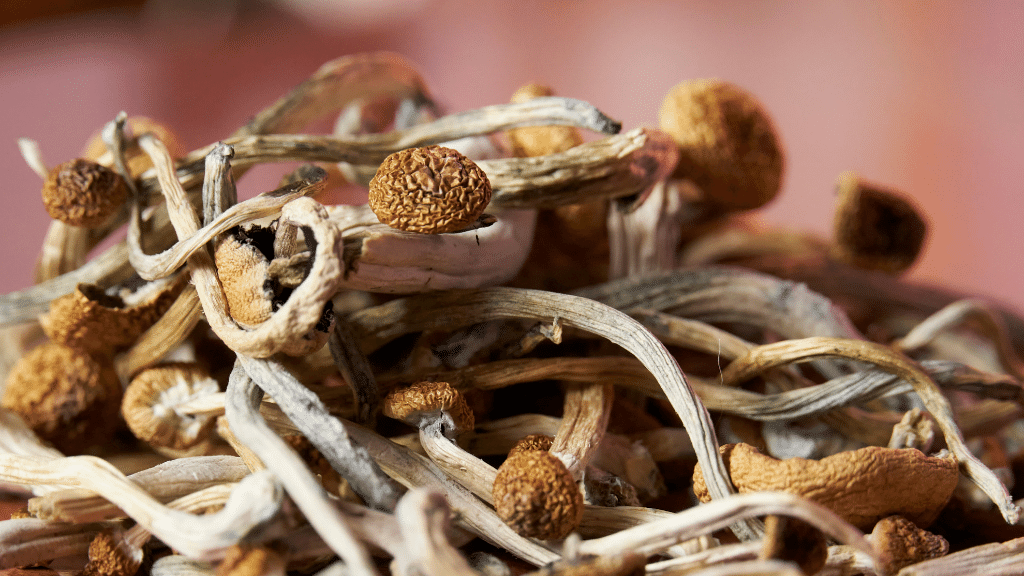
A number of small clinical studies have been conducted, and the results have been promising. For example, a study published in the Journal of Psychopharmacology found that a single high dose of psilocybin was associated with a significant reduction in depression and anxiety symptoms in people with advanced cancer. Another study published in the New England Journal of Medicine found that two doses of psilocybin, combined with psychotherapy, were associated with a significant reduction in depression and anxiety symptoms in people with treatment-resistant depression.
While these studies suggest that psilocybin may have the potential to be an effective treatment for depression, more research is needed to fully understand the mechanisms of action and the optimal dosing and administration of the compound. It's also important to note that psilocybin is currently a Schedule I controlled substance in the United States, which means it is illegal to possess, use, or distribute without a special license.
Learn more about psychedelics for depression here.


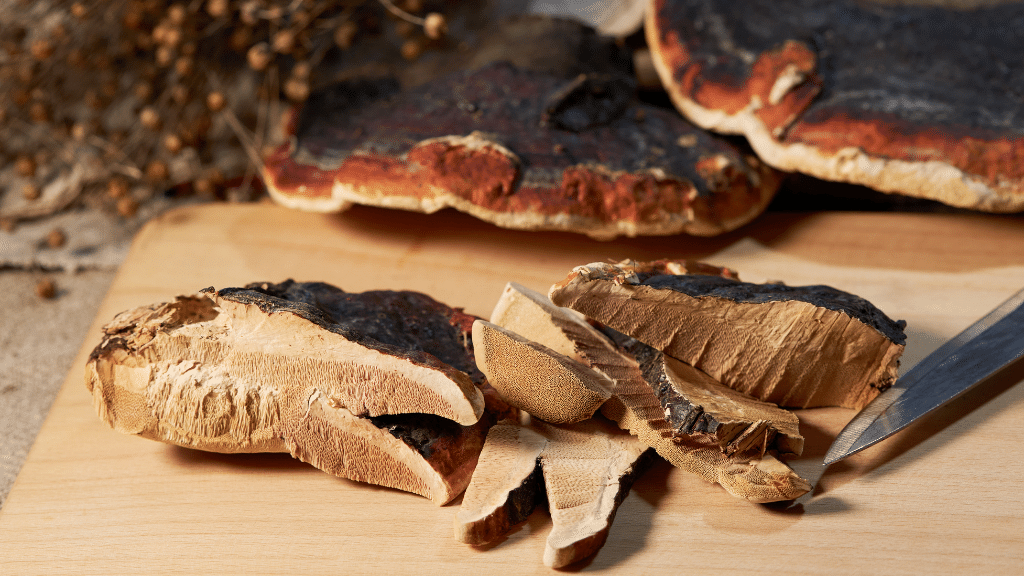
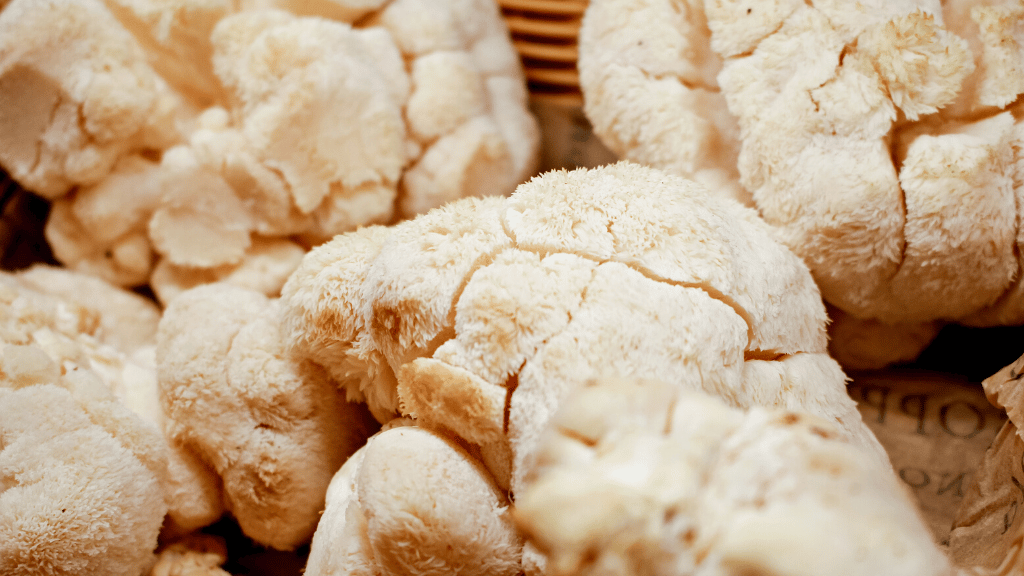


.png)
